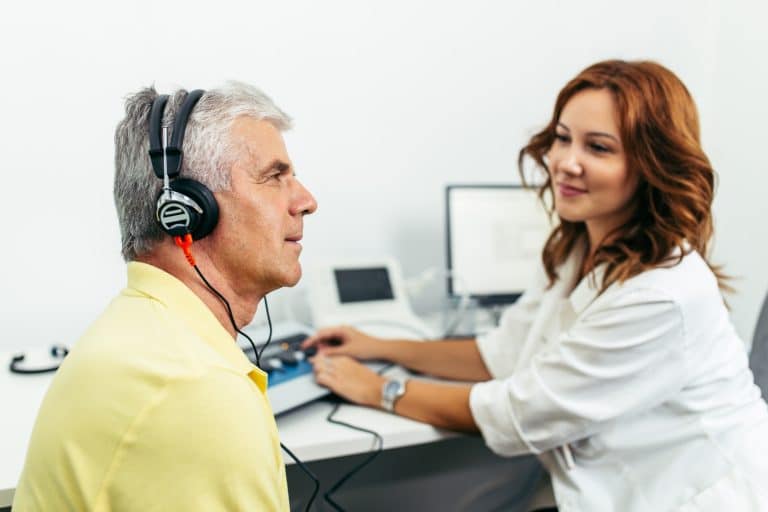If you experience any of the signs of hearing loss – like thinking everyone around you is mumbling, frequently asking people to repeat themselves, having trouble following conversations at Rich Table and other busy settings or withdrawing from social situations you once enjoyed – it is time to schedule a hearing test. Below is an overview of what to expect.
Medical History
First, your audiologist will talk to you about your medical history and lifestyle.
Questions about your medical history include whether you have a family history of hearing loss, what medications you take (some medications are ototoxic – meaning they can damage your hearing) and what medical conditions you’ve been diagnosed with (as many are closely linked to hearing loss).
Questions about your lifestyle may include what you do for work and what hobbies you enjoy. Your audiologist may ask questions that seem strange, like what ear you use to talk on the phone, but this is to help determine what ear is affected and how hearing loss impacts your life.
Otoscopy
Your audiologist will also check your ears with an otoscope, which is a lighted instrument that helps them see what’s going on. Your hearing loss may be due to something as benign as earwax buildup, an infection or a foreign object.
Tympanography
Tympanography tests the flexibility of your eardrum. This test is conducted by placing a probe in the ear and creating a tight seal around the ear canal. The probe gently raises the pressure in your ears and draws it back out to see if the eardrum responds correctly. A machine then graphs these pressure changes.
Speech Testing
A speech test is a two-part test conducted in a sound booth with headphones. For both parts, you’ll repeat any words you hear.
- Speech reception threshold identifies the lowest volume at which you can recognize simple words. The words become gradually softer until you cannot hear 50% of them.
- Word recognition testing entails repeating words you hear played at normal volume to see if you can distinguish between words containing similar sounds.
Air Conduction Testing
Air conduction testing is similar to speech testing, except instead of words you’ll hear beeps. These beeps will be various volumes and pitches, and you’ll indicate which beeps you can hear. These results are then charted on an audiogram – a visual representation of your hearing loss.
For more information or to schedule an appointment, call SH Audiology today.
